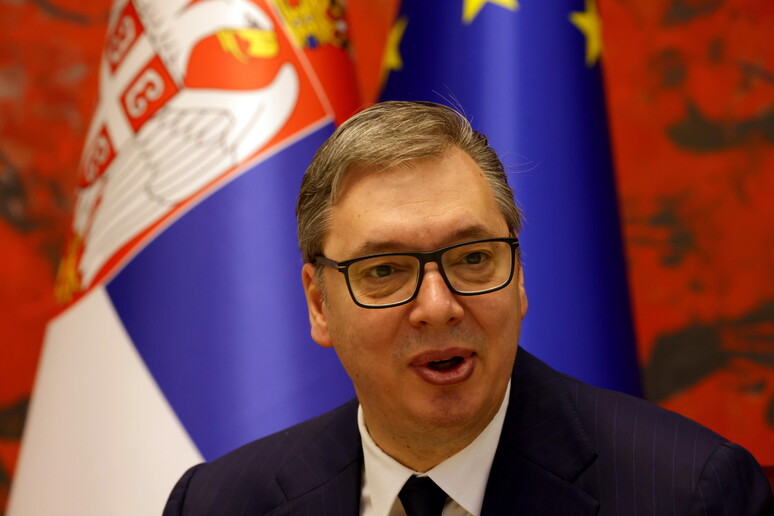Serbian President Aleksandar Vucic
again rejected any involvement of Belgrade in the aqueduct
explosion that occurred on the evening of Nov. 29 in northern
Kosovo, and denounced what he called a "big, hard hybrid attack"
against Serbia. Speaking at a press conference broadcast live
on TV, Vucic accused Kosovo Prime Minister Albin Kurti and the
entire leadership in Pristina of immediately pointing the finger
at Serbia without wanting to wait for the results of an
objective investigation into what happened. Investigation to
which, he stressed, Belgrade intends to contribute by
cooperating with all parties, including investigators in
Pristina. "We are absolutely open to full cooperation with
Eulex, Kfor, with everyone and on every issue," the president
said. Neither Belgrade nor Serbia, he added, has any connection
with what happened in northern Kosovo, and it will be the
investigation that will shed light on what happened and those
responsible for the sabotage. For Vucic, Pristina's hasty and
baseless accusations against Serbia were a "set-up for the
benefit of international public opinion, as well as domestic
public opinion."In his remarks before the press, Vucic said he
believed that the attack on the aqueduct was orchestrated by
Albanians (from Kosovo) and possibly individual Serbs
collaborating with (Kosovo Prime Minister) Albin Kurti, although
Belgrade has no official confirmation of this. "If it is
established that any Serbs played a role in this, they will be
immediately arrested and immediately tried. But I'm afraid that
will not be the case," Vucic said. The president, stressing that
Belgrade had not the slightest interest in carrying out an
attack on the aqueduct, which also serves the local Serb
population in northern Kosovo, then outlined five reasons he
believes led Pristina to accuse Serbia. The first is to want to
impose the stationing of Kosovo Security Force units in the
Serb-majority north of the country, to decree an increasing
presence of Pristina in Serb-inhabited territories. The second
is to damage Serbia's image and curb its path to EU integration.
Vucic's third reason is the upcoming parliamentary elections
scheduled to be held in Kosovo on February 9, with a desire to
present Serbs and the Srpska Lista party as terrorists who have
no right to participate in the country's public and political
life. Another reason, he added, is PM Kurti's desire to improve
his image and his declining popularity rating, while the last
reason to explain Pristina's behavior is to continue with the
policy of terror and persecution of Serb communities in Kosovo,
and particularly in the north. Vucic then referred polemically
to a statement by German Michael Roth, head of the Bundestag
foreign affairs committee, that if Belgrade's responsibility in
the aqueduct bombing is proven, it will mean a halt to EU
accession negotiations. Roth's words, Vucic said, were not a
surprise since he is in his own words a lobbyist who has been an
Albanian supporter since 1999 (since the armed conflict in
Kosovo, ed.). "In this case I fully agree with Mr. Roth. If it
is proven that Belgrade is responsible, I ask you to stop our
European path," the Serbian president said. The U.S. has
condemned the attack on Kosovo's water infrastructure. "We
condemn the Nov. 29 attack on Kosovo's water supply," State
Department spokesman Matthew Miller wrote on X. "We will support
efforts to find and punish those responsible and appreciate all
offers of support for that effort," he added.
ALL RIGHTS RESERVED © Copyright ANSA





